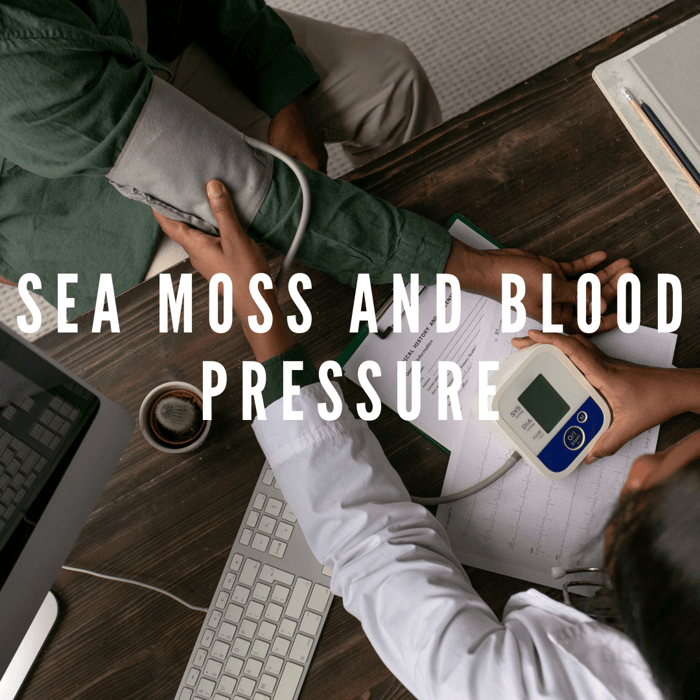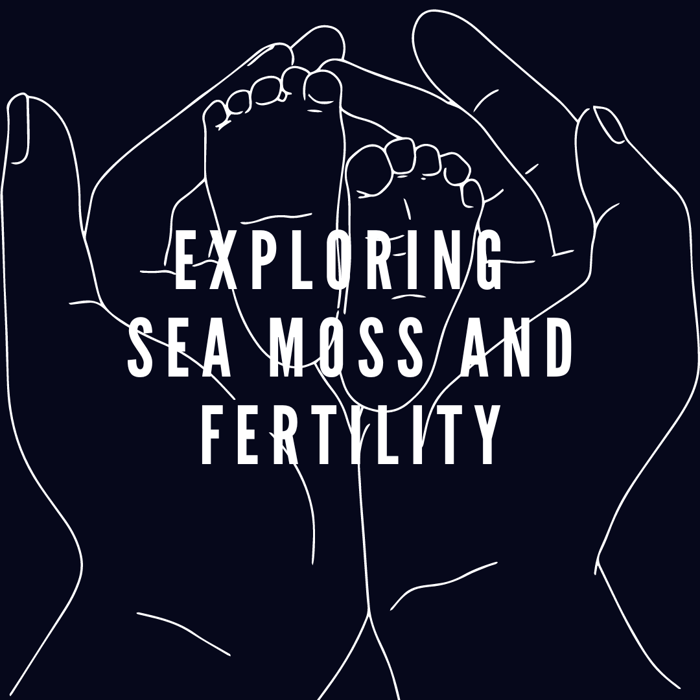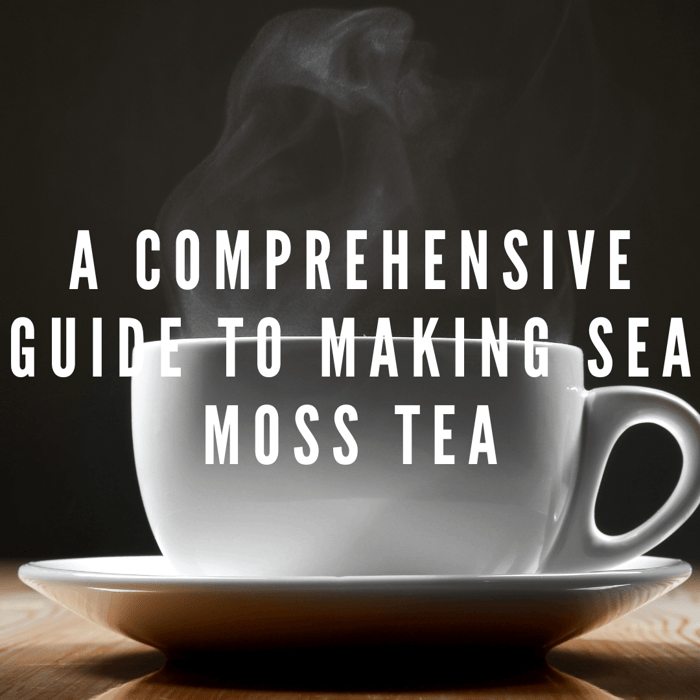Table of Contents
- Introduction
- Understanding Blood Pressure
- Deep Dive into Sea Moss
- Sea Moss and Its Potential Health Benefits
- The Impact of Sea Moss on Blood Pressure
- Other Natural Remedies and Dietary Approaches to Control Blood Pressure
- How to Incorporate Sea Moss in Diet
- Limitations and Future Research
- Conclusion
Quick Summary
| Topic | Summary |
|---|---|
| Sea Moss | A nutrient-rich seaweed with potential health benefits, including possible blood pressure management. |
| Blood Pressure | A crucial health indicator that can be influenced by diet, lifestyle, and natural remedies like sea moss. |
| Sea Moss Benefits | Sea moss is rich in essential nutrients and may offer several health benefits, including potential blood pressure regulation. |
| Incorporating Sea Moss | Sea moss can be incorporated into the diet in various ways, including in smoothies, soups, and as a supplement. |
| Research Limitations | While promising, more research is needed to fully understand the impact of sea moss on blood pressure. |
Sea Moss and Blood Pressure
I. Introduction
Sea moss, also known as Irish moss, is a type of seaweed that has been used for centuries in regions like the Caribbean and in traditional Chinese medicine for its potential health benefits. This nutrient-rich sea vegetable is gaining popularity globally as a natural remedy for various health conditions, including managing blood pressure.
Managing blood pressure is crucial for overall health. High blood pressure, or hypertension, can lead to serious health complications like heart disease and stroke. This article will explore the potential benefits of sea moss in managing blood pressure, its nutritional composition, and how to incorporate it into your diet.
II. Understanding Blood Pressure
Blood pressure is the force exerted by the blood against the walls of the blood vessels. It is measured in millimeters of mercury (mmHg) and is presented as two numbers: systolic pressure over diastolic pressure. Systolic pressure represents the force your heart exerts when pumping blood out, while diastolic pressure represents the force when your heart is at rest between beats.
Maintaining healthy blood pressure is vital for overall health. High blood pressure can strain the heart and damage the blood vessels, leading to heart disease, stroke, and other health problems. Factors affecting blood pressure include age, weight, diet, physical activity, and genetics.
III. Deep Dive into Sea Moss
Sea moss, popularized by the late Dr. Sebi, a renowned herbalist, is a type of red algae that grows in the Atlantic Ocean. It is known for its rich nutritional profile, including vitamins, minerals, and antioxidants.
The use of sea moss in traditional and modern medicine is extensive. It has been used to treat a variety of conditions, from respiratory illnesses to skin diseases. In modern times, sea moss is often consumed as a supplement or incorporated into foods and drinks for its potential health benefits.
Continue reading to learn more about the potential health benefits of sea moss, including its impact on blood pressure, and how you can incorporate it into your diet. Don't forget to check out our bundles for the best deals on our sea moss products.
IV. Sea Moss and Its Potential Health Benefits
Sea moss is a powerhouse of nutrients. It is rich in essential minerals like iodine, potassium, calcium, and magnesium, and vitamins such as vitamin C and folate. These nutrients play a crucial role in maintaining overall health and wellbeing.
For instance, iodine is essential for thyroid function, while potassium helps regulate heart rhythm and blood pressure. Calcium and magnesium contribute to bone health, and vitamin C is a powerful antioxidant that boosts the immune system.
Several studies have suggested potential health benefits of sea moss, including boosting immune function, improving digestion, promoting skin health, and potentially managing blood pressure. However, it's important to note that more research is needed to fully understand these benefits.
V. The Impact of Sea Moss on Blood Pressure
Sea moss's potential impact on blood pressure may be attributed to its high potassium content. Potassium is a mineral that helps regulate fluid balance, nerve signals, and muscle contractions in the body. More importantly, it can help relax the walls of the blood vessels, thereby reducing blood pressure.
Several studies have suggested a link between increased potassium intake and lower blood pressure. However, the exact mechanism of how sea moss may help manage blood pressure is still under investigation.
| Criteria | Sea Moss | Modern Medicine |
|---|---|---|
| Source | ✅ Natural | ❌ Synthetic |
| Side Effects | 🗸 Few Known | 🗸/❌ (Depends on the drug) |
| Cost | ✅ Generally Affordable | ❌ Can be Expensive |
| Scientific Research | ❌ Limited Studies | ✅ Extensively Studied |
| Availability | ✅ Widely Available | ✅ Widely Available |
VI. Other Natural Remedies and Dietary Approaches to Control Blood Pressure
Besides sea moss, there are other natural remedies and dietary approaches that can help manage blood pressure. These include a balanced diet rich in fruits, vegetables, whole grains, lean proteins, and low-fat dairy products. Regular physical activity, maintaining a healthy weight, limiting alcohol intake, and avoiding tobacco can also contribute to blood pressure management.
Compared to these solutions, sea moss offers a unique combination of essential nutrients that may potentially help manage blood pressure. However, it's important to remember that sea moss should be part of a balanced diet and healthy lifestyle, not a replacement for them.
VII. How to Incorporate Sea Moss in Diet
There are several ways to incorporate sea moss into your diet. One of the most popular ways is to consume it in the form of a gel. Sea moss gel can be added to smoothies, soups, or sauces. It can also be used as a thickener in baking. Additionally, sea moss is available in capsule form as a dietary supplement.
While sea moss is generally considered safe for consumption, it's important to be aware of potential side effects. These may include stomach upset, changes in thyroid function. Always consult with a healthcare professional before starting any new dietary supplement, including sea moss.
VIII. Limitations and Future Research
While the potential benefits of sea moss are promising, it's important to note the limitations of current research. Most studies on sea moss and blood pressure have been conducted in laboratory settings or on animals, and more human trials are needed to confirm these findings.
Future research should focus on understanding the exact mechanism of how sea moss may help manage blood pressure, as well as its long-term safety and efficacy. It's also important to consult with healthcare professionals before making any dietary changes for health reasons.
IX. Conclusion
Sea moss is a nutrient-rich sea vegetable that may offer several health benefits, including potential blood pressure regulation. However, more research is needed to fully understand these benefits. Incorporating sea moss into a balanced diet and healthy lifestyle can contribute to overall health and wellbeing.
Remember, managing blood pressure is a long-term commitment that involves a balanced diet, regular physical activity, and a healthy lifestyle. Always consult with a healthcare professional before starting any new dietary supplement or making significant changes to your diet.
Visit our product page to explore our range of sea moss products, and check out our wildcrafted organic sea moss gel with Manuka honey for a delicious way to incorporate sea moss into your diet.
 is here! Shop now, pay later in 4 easy installments
is here! Shop now, pay later in 4 easy installments



